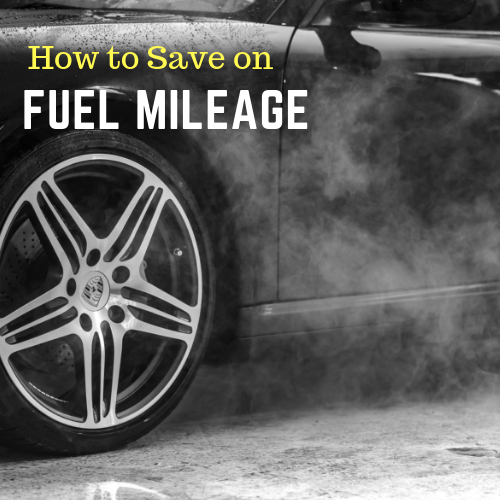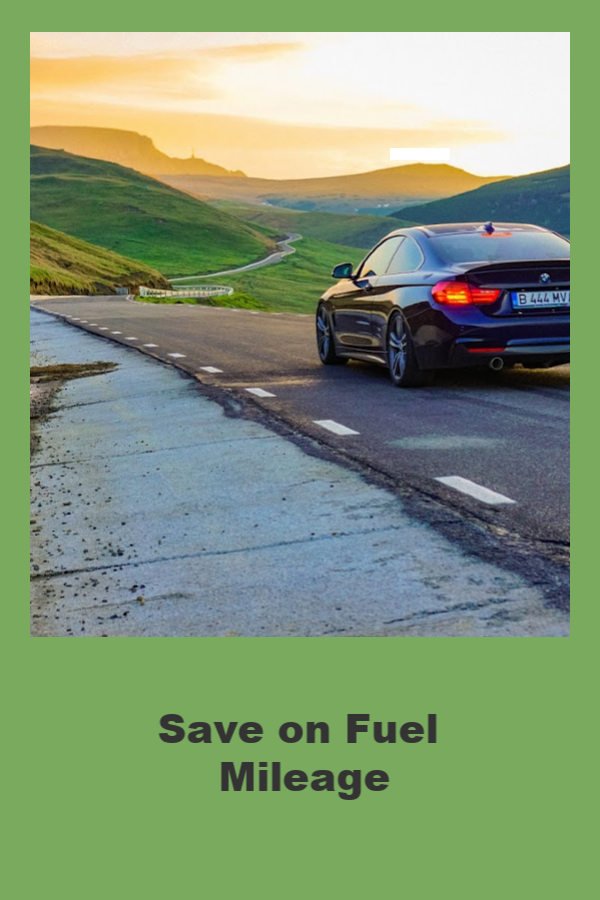
How to Increase Fuel Mileage Now
Everybody wants to know how to save money on gas. What if that could be done by attending to fuel mileage over time with a few small changes to your habits? Well, with the prices of gas constantly fluctuating any and all tips are welcome here.
Fuel saving techniques are obviously related to driving habits, but did you know they are also dependent on vehicle maintenance? It’s true. Combined with changing your driving habits a bit, regular vehicle maintenance can make an impact on your fuel mileage and gas costs. I mean individually each idea here is not extremely new, but if you pay attention to most or all of these then the fuel savings could be substantial.
Table of Contents
Vehicle Maintenance for Improved Fuel Mileage
Adhering to a routine vehicle maintenance regimen can improve the number of miles or kilometres per gallon. Keeping the car’s engine running at its peak performance level helps burn less fuel.
Some maintenance services that should be performed as a scheduled routine include:
Engine oil and filter change
Engine air filter
Fuel filter
Tire rotation – stay on top of this or you wear your tires out faster too and that’s wasteful.
Oil is a lubricant that reduces friction in moving engine parts. A dirty air filter restricts the amount of air inducted into the motor. A dirty fuel filter can reduce the fuel flow. If these routine maintenance items go unchecked, the engine may burn more fuel to compensate for increased friction or lack of air.
Tire Care for Improved Fuel Economy
Underinflated tires increase the rolling resistance of the vehicle. To compensate for the increased rolling resistance, the engine has to work harder to maintain a given speed. A harder working engine translates into more fuel consumption. Underinflated tires will also wear prematurely and have an increased chance of a blowout. Nobody wants that. These are the three big reasons that a vehicle’s tires should be maintained at the recommended tire pressure. I wrote about the difference our new snow tires made to that in this snow tires post.
Nitrogen?
One method that can help maintain tire pressure is to fill the tires with nitrogen instead of air. Since the molecules are larger, nitrogen tends to escape at a much slower rate than air. Most auto repair shops that are in the business of selling and servicing tires have nitrogen available at a minimal cost. There are a few other benefits of nitrogen-filled tires besides maintaining the appropriate tire pressure, but that’s a post for another day.
Driving Habits for Increasing Fuel Mileage
Individual driving habits can have a dramatic impact on fuel consumption. Aggressive drivers that consistently have their foot on the accelerator, weaving in and out of traffic, will burn much more gas than drivers that obey the speed limit. So take that rambunctious driver!! Using low gears to gain more engine power for quick acceleration will create more engine revolutions per minute (RPM). Did you know that engines that turn at a higher RPM naturally burn more fuel.
Since an engine that runs at a higher RPM burns more fuel, overdrive (if equipped) should be used as often as possible, even in stop and go traffic. Overdrive allows the engine to run at a lower RPM while turning the wheels at a higher rate.
This might sound obvious but it isn’t always. If you really want to save fuel and do the environment a favour while you are at it, then walk, or carpool, or ride a bike. Ask yourself if you really need to use the car to pick up your children at school. Or, do you really need to drive by yourself to work every morning. There might be a better way.
Make Smart Driving Choices
More importantly, owners of any vehicle have to get in the right mindset with respect to driving to save fuel. Keeping within the posted speed limits and using overdrive are just some positive driving habits. Other things like coasting to a stop without riding the brakes and light acceleration on take offs can help to improve mileage and gas costs. Change a few of these things and keep track of the impact. You may be surprised.






